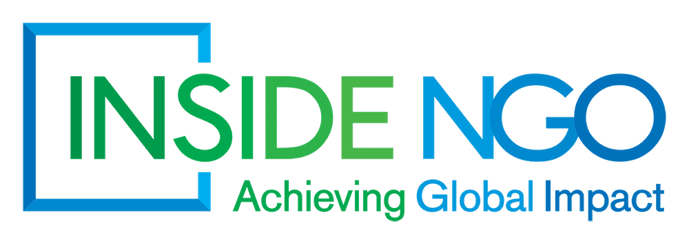1. Enterprise Content Management (ECM) is Critical for Compliance
Compliance is easy... Said no one, ever. All of your policies, procedures, and controls mean nothing if you don't have a record of your actions. What are you going to say to the auditor? “Trust us?” That won’t get you very far.
Enterprise Content Management has many facets that play a vital role in achieving and maintaining compliance, including Document Management, Records Management, and Business Process Management.
2. Banking Regulations Will Increase Requests for Documentation
Banks are under increased pressure to be accountable for the flow of money. They are responsible for preventing money laundering, fraud, and theft. With that increase in their accountability, they are going to request more documentation from NGO’s, especially those that operate internationally.
If a bank audits your wire transfers to country offices, what type of documentation can you provide for the use of those funds? Is it stuck in paper in another country? Who approved the transfer? What is your approval process? How do you reduce the risk of fraudulent transactions?
Many NGO's are turning to cloud-based ECM. It gives them instant and secure access to those records anywhere in the world. No paper to store, ship, or lose.
3. Donors Demand Strong Risk Management Policies and Procedures
Reducing risk is fundamental to NGO survival. Defraudation is a quick way to lose trust and credibility with chief donors. If you can’t show them where the money is going, guess what: no more money. Many NGO's are relying upon ECM to enforce the policies, procedures, and controls needed to prevent fraudulent behavior.
4. Most Financial Systems (Even ERP) Lack Critical Compliance Functionality
Just about all NGO's have a financial system for accounting. Some even have an Enterprise Resource Planning Solution (ERP) that serves as their financial system. While ERP solutions do many things, they are not well suited for managing documents and records. They don’t have the version control and records management functions that are critical to the history of documents. NGO's that use ECM solutions along with ERP improve compliance efforts dramatically.
5. Internal Controls Streamline NGO Processes and Increase Efficiency
NGO's are turning to ECM to provide the implementation side of internal controls. Once they map the controls into the solution, the system helps them enforce the controls. Need three levels of approval to pay and invoice? The system enforces it. Managers not allowed to approve their own expense reports? Insert that rule into the ECM process.
6. NGO's Struggle to Maintain Intellectual Capital
One of the challenges NGO's have with maintaining intellectual capital is getting people to document it. Intellectual capital starts in the brains of your employees. Documenting processes and methodologies are the first steps to prevent losing information critical to the life of your NGO.
Effectively capturing intellectual capital takes training, monitoring, and the right technology. Many NGO's use ECM to safely organize and store that documentation. It enables them to define the metadata and categorization of the documents so they can be quickly indexed and searched. The search accuracy is also higher since they don’t have to use Optical Character Recognition to try to interpret a printed page and convert it to text.
7. NGO's Need to Increase Global Information Sharing
Having information stored and indexed is great, but it's worthless in a vacuum. Using a cloud-based ECM to share information globally helps NGO's standardize administration and methods of delivery, which in turn increases efficiency, reduces cost, and allows employees to move easily to another part of the organization.
8. Cloud-Based Technology is Becoming Mainstream for NGO's
If NGO's want to accelerate their transformation to the digital world, they have to make it easy for their team. IT resources are getting stretched to the breaking point. Cloud-based solutions make it easier to transition to the digital world because they don’t require large teams of people to install and manage. No servers to order and wait for. No software to download and install. Just log in and start using it. IT will still play a role in managing the application and security, but they can spend more time focusing desktops and networks instead of managing servers and databases.

